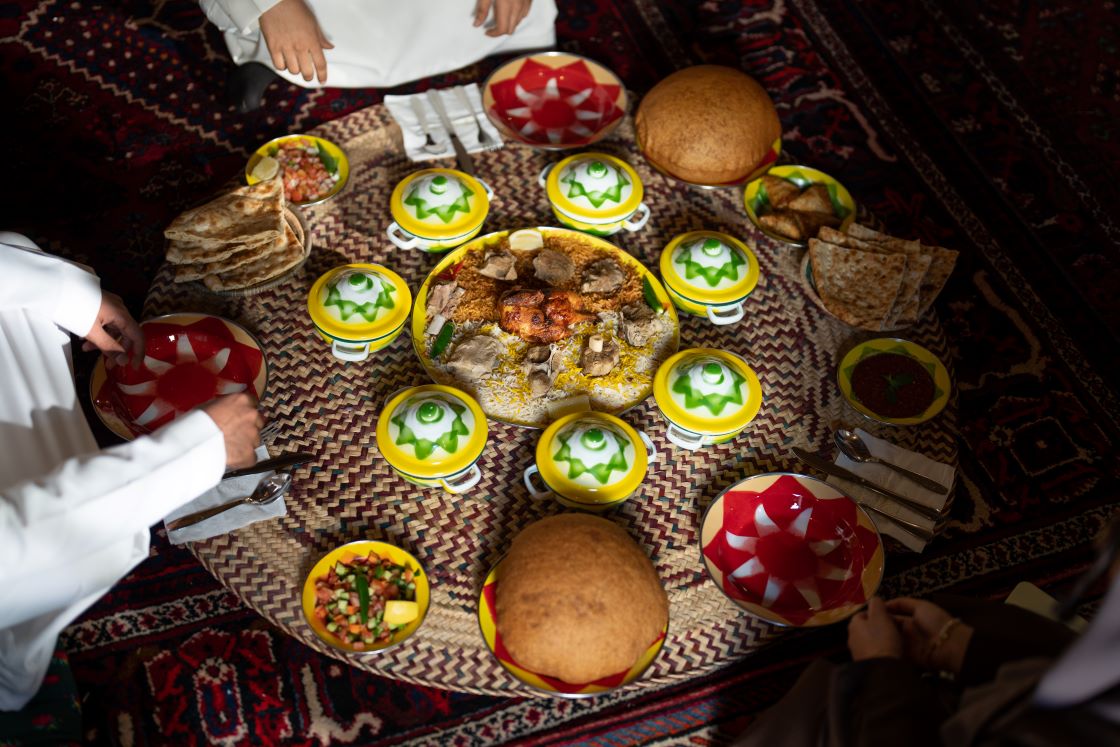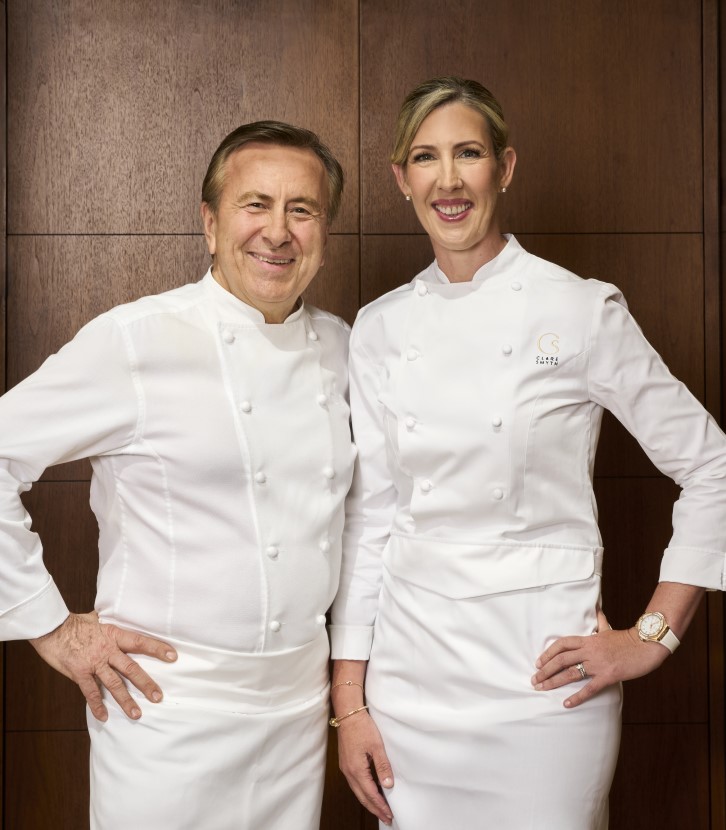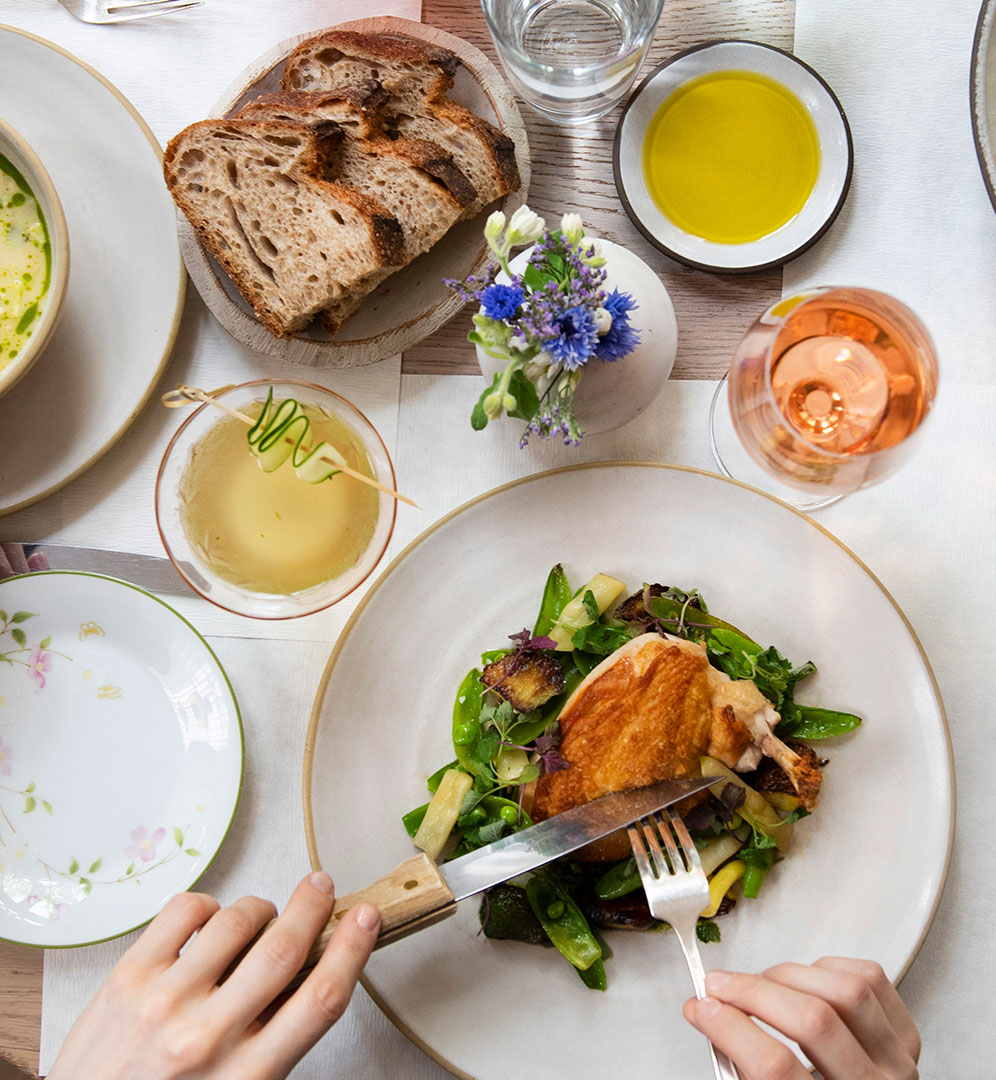Dating back centuries, soul food originated with slaves in the American South. Recognizing its history, Chef Deborah VanTrece showcases her ancestors’ recipes adding her own new creations for the next generation of Atlanta diners. Southern fried chicken and chitlins bring the tradition, while hoisin oxtails, and collard greens golumpki bring the global twist.
Before you dive into VanTrece's story of bridging her family's history with her love of gastronomy, check out what our Inspectors had to say here.
Soul food, also known as Southern food, is a core part of American history. "There is a huge impact my African ancestors had on the food of the United States," says VanTrece. "The people who were doing the cooking were Africans that had been shipped here to be slaves. Our spices and seasonings were brought here. Our knowledge of cultivating rice was brought here. We created amazing dishes with them. In my opinion, soul food is the beginning of American cuisine.”
Van Trece's restaurant, Twisted Soul Cookhouse & Pours, sits in the Westside’s historic district of Blandtown, which was one of the first Black neighborhoods in Atlanta. Founded by former slave Felix Bland after the Civil War, the area presently serves as the backdrop for culinary hotspots.

Despite being in the ironically-named Blandtown, Twisted Soul is anything but. Chef VanTrece’s fried chicken is tender, savory, and juicy with a light crust. Brined for 24 hours with red peppercorns, bayleaf, garlic, onion and salt, the meat is seasoned with a special blend of flour, fried in a cast iron skillet, deep fried and topped with a cayenne honey drizzle. It’s served with a collard greens roll, a three cheese mac and cheese, and sweet potato chutney. It’s so delicious that it will never leave the menu.
Another soul food classic is VanTrece’s chitlins (pig intestines), typically served during celebratory seasons. She prepares them in the Southern tradition, as well as in a French-inspired sausage. “I’m a chitlin girl," she says, adding, "it's been a tradition in my family. I learned how to cook them with my mom, with my grandmother.”

It's a dish steeped in history. “They are the perfect illustration [of] how our ancestors, how slaves were survivors," explains VanTrece. "Their strength, their tenacity, their creativity, to be able to take something which was a throw away—a cast off. To understand the parts of an animal to the degree that they did, to know we should be eating as much of the animal as we possibly can.”
Today's preparation is equally laborious (and delicious): after separating the membrane and removing waste, cleaning can take as long as an hour and a half to clean, followed by an additional three to four hours to cook. “The pot goes celery, onion, lots of garlic, seasonings, salt. I don't use black pepper because it makes the chitlins look dirty. It's too close to the look of the waste.”
They also have a strong unmistakable odor, but VanTrece says, “I smell the love inside of it. It is a labor intensive act of love to me anytime someone is preparing chitlins. That is one dish that definitely comes from the soul.”
However, VanTrece is more than a single dish. She's expanded on the flavor profiles of her ancestors and put her own stamp on southern cuisine. Taking global inspiration, dishes including the Asian-inspired hoisin oxtails, a favorite of her protégé, chef Robert Butts, marry culture with cuisine. “People think oxtails: Caribbean," says Butts. "Your traditional rice, oxtails and cabbage. But we do a little Asian twist to it with basmati rice and sauteed bok choy.”
Another is the collard greens rolls. After a Polish woman spoke about her grandmother’s golumpki cabbage rolls, VanTrece put her own soul food spin on it, using collard greens in lieu of cabbage and smoked ham hocks instead of minced pork. “We listen to people, and then we come back to what we know, what our culture is, and figure out how we combine the two,” says VanTrece.

VanTrece's appreciation for merging cuisines started with her former career as an American Airlines flight attendant. She traveled the world and was struck by France and its food culture, prompting her to enroll in culinary school. This ethos is shared by Chef Butts who left his career as a news anchor after finding his “love language” through a stage with a chef in France. His mentor would bring produce straight from the garden to have him practice farm-to-table cooking.
That training proved to be the foundation of the duo's magic. Chef Butts visits nearby farms to find the best pecans, collard greens, peanuts, peaches and mushrooms. VanTrece says, “[Chef Butts] is serving as a Georgia Grown [Executive] Chef. I'm a previous Georgia Grown [Executive] Chef. It's a program with the Department of Agriculture to learn more about the products of Georgia, so that we start using them in our cuisine.”
Through it all, VanTrece has been a driving force behind the continued celebration of Southern cuisine in Atlanta, passing down her expertise to a new generation of chefs from all different cultures. And with delicious—and unique—flavors to boot.

Outside of the food, VanTrece’s daughter Kursten Berry makes sure the restaurant celebrates modern Southern culture as well. She chooses a playlist that can vary from calm jazz to upbeat hip hop and R&B. If the mood is right, even Megan Thee Stallion. For drinks, one of her star cocktails features pomegranate and tequila, named “No Cryin’ at the Pynk,” a reference to the Mississippi-based television show P-Valley on STARZ.
Initially hesitant to move to the South, VanTrece was impressed with Atlanta’s acceptance of diversity. “It's a historical place, it's the home of civil rights giants. Right after the [1996 Atlanta] Olympics, we saw more of an influx of different types of cuisine. We have people who have come to this city, bringing in their culture and their food.”

Hero image: Leslie Andrews/Twisted Soul Cookhouse & Pours




















